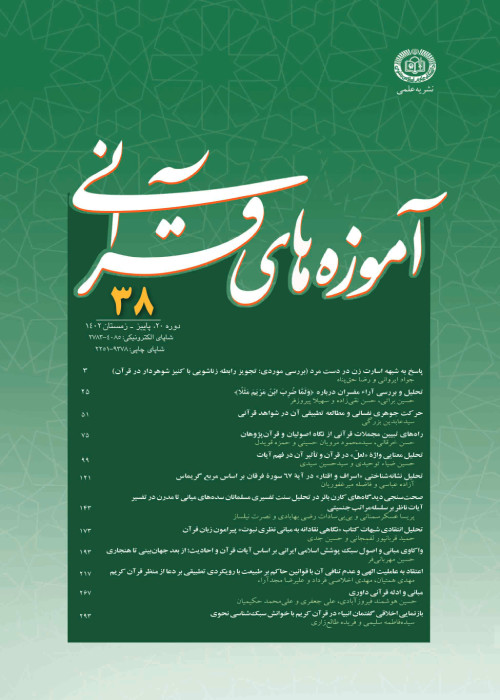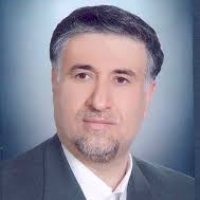The Place of the Primary and Fundamental Human Needs in the Quran Verses with a Look to the Johan Galtung’s Theory in the Categories of Peace and Violence
From the view of Johan Galtung war is merely a form of violence and peace is not gained through armistice but it is took place by the absence of violence. Galtung defines that violence is the avoidable impairment and disturbance for the satisfaction of the fundamental needs of human beings and every violence is the origin of the next chain of violence, Therefore for achieving peace the cycle of violence should be broke and this does not occur except with eliminating the injustice and discriminatory relations among nations. From his view the culture is the origin of these relations and the religion which is of the main components of the culture has a vital role in establishing peace or the propagation of violence. In the present note the main issue is what the place of the primary and basic human needs in the Quran teachings. Have these needs been respected and recognized in the holy Quran? The positive response to this question will mean peace-centered of the Quran teachings and the negative response will mean the violence-centered of the Quran Teachings. This research with analytic-descriptive method has been adopted and at the end it results that the primary and basic human needs have a superior position in the holy Quran. The correlation of the concepts “corruption and shortcomings” with violence and the correlation of the concept “aggression with the intention to create corruption on the earth” with terrorism is a sign of Islam intention to combat with violence and terrorism.
The noble Quran , Islam , Violence , Peace , Primary needs , Johan Galtung
-
Applicationology of the Word قریب (Qarīb in the Phrase "Yatūbūn Min Qarīb" in Verse 17 of Surah Nisá)
Maryam Jan Nesari*, Mehdi Moti, Mehdi Habibollahi
Journal of Pazhouhesh Dini, -
The Transitivity Structure of the Letter of Imam Ali (AS) to Imam Hassan (AS) According to Halliday's Systematic Grammar
Maryam Peymani, *
Tahqiqat-e Ulum-e Qur´an wa Hadith, -
Semantic Analysis of the Word»Takhattuf«in the Qur'an with Emphasis on Commentators' Views
Davood Esmaeili, Mohammadreza Hajiesmaeili *, Elham Aghadoosti
Journal Linguistic Research in the Holy Quran, -
Investigating the intertextual relations of the Qur'an and Sermon 152 of Nahj al-Balaghah in the field of divine names and attributes
Marziyeh Fayaz, Mahdi Moti *, Mohammad Reza Haji Esmaeili, Mahdi Habibollahi
Islamic Art Studies, -
An Investigation into Peace and Violence in the Quranic Teachings with a Look at Johan Galtung's Theory of Cultural and Structural Violence
Ahmad-Ali Sahib Nasi, Mehdi Moti’ *, Mohammad-Reza Haji Ismaili Hosseinabadi
Journal of Pazhouhesh Dini,





